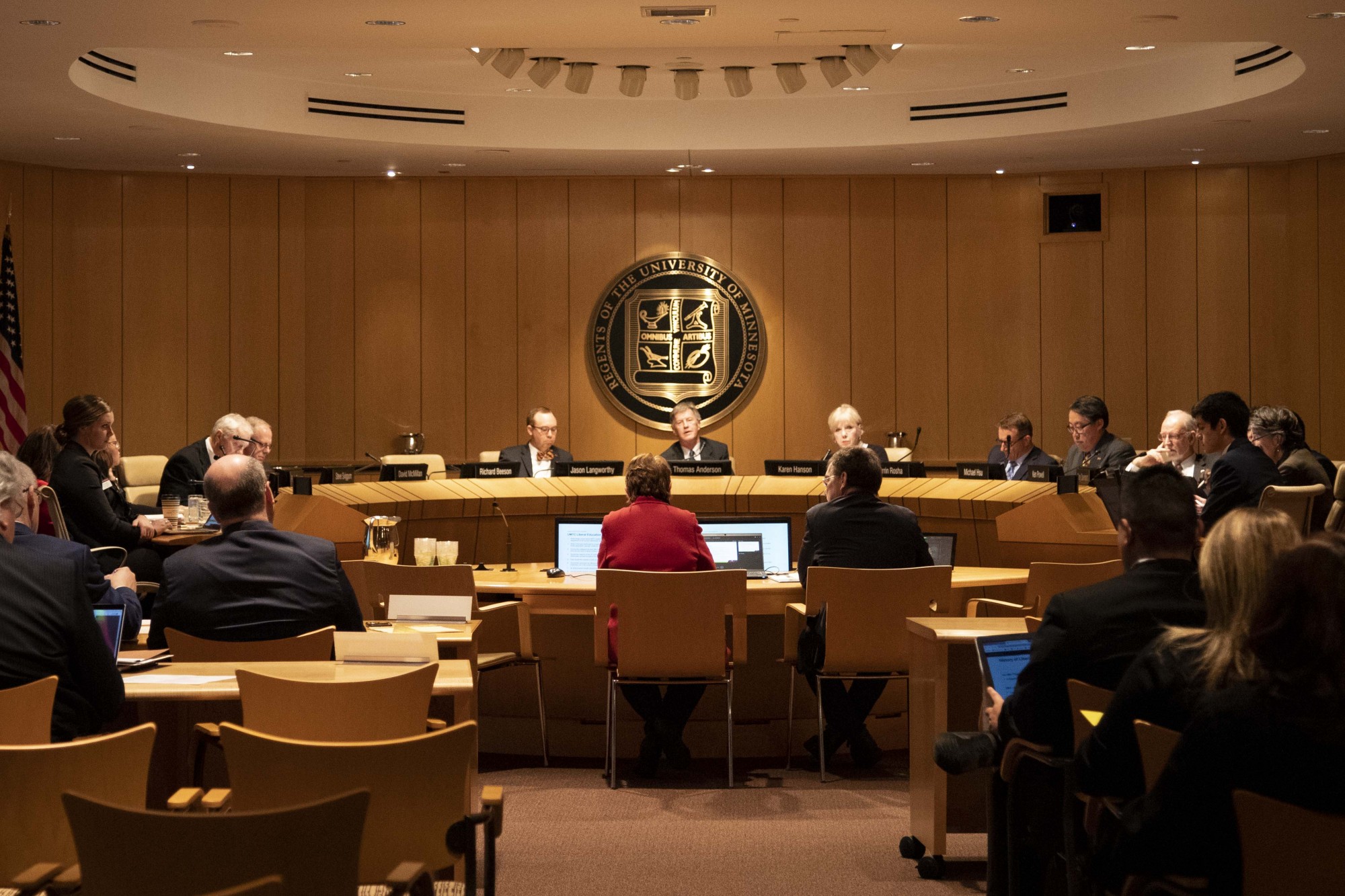Renaming, real estate, unions, student mental health and diversity were all topics discussed at the University of Minnesota Board of Regents’ first meeting of the semester.
President Joan Gabel presented updates about building renaming, student mental health and sexual assault on campus. Faculty diversity, strategic planning and outreach were other key conversations. The board also voted in favor of all AFSCME union workers contracts. Negotiations for these contracts have been ongoing for several months.
Renaming policy
Almost a year after the board’s vote against renaming several campus buildings last spring, the topic was on the table again. On Friday, the board discussed how to address renaming going forward.
“The University reserves the right to rename or revoke a naming if for any reason it is inconsistent with the University’s mission, jeopardizes the integrity of the University, presents risk or harm to the reputation of the University, or if the intent of a gift or the terms of a sponsorship associated with the naming cannot be fulfilled,” read one of the drafted amendments to the regents’ policy on renaming.
The proposed amendments to the policy also outline guiding principles for review in renaming situations, as well as what a request for renaming should include going forward.
Regents discussed the content and language of the policy and how much responsibility lies on the board or on academic leaders and faculty when it comes to determining these changes. The board will discuss the topic again in the coming months.
President Gabel’s initiatives
The meeting also gave Gabel the opportunity to update the regents on her mental health initiative. Along with Carl Anderson, the assistant vice provost and director of Boynton Health, Gabel described the initiative’s early scans of pre-existing resources on campus.
“We’re at an intermediate step,” Gabel said of the initiative in an interview.
Immediately following the update, the regents also discussed the President’s Initiative to Prevent Sexual Misconduct, which is also in its early stages. Gabel used this time to describe what the University has identified as problems related to sexual assault on campus, as well as possible areas of improvement.
“We’ve learned that our work needs to be trauma-informed,” Karen Miksch, an associate professor in the College of Education and Human Development, said at the meeting. She also emphasized that being aware of how the reporters and victims of sexual assault is key for all stages of discipline.
University of Minnesota-Duluth School of Fine Arts merger
The board voted in favor of merging the School of Fine Arts and the College of Liberal Arts on the Duluth campus.
This decision was made in an effort to preserve academic affairs amid cuts to the budget, Duluth Executive Vice Chancellor for Academic Affairs Fernando Delgado said at the meeting.
Regent David McMillan noted that as a result of the decision, the system now lacks a fine arts school on the system campuses.
“It’s a hard step, and it’s hard in the Duluth community, but I hope it doesn’t reflect a lack of commitment to these disciplines and a value of a fine arts education in our world,” he said.
Faculty at the Duluth campus have been tasked with mapping out what the future of the merger will look like, Delgado said.
Faculty diversity
Several administrators gave the first of three presentations on diversity at the University, which was focused on faculty. Subsequent presentations, to be given later this year, will focus on diversity of students and diversity of staff.
The presentation highlighted several initiatives the University has implemented to encourage the diversification of faculty.
Systemwide Strategic Plan update
Gabel provided an update on the Systemwide Strategic Plan, where she layed out the five core values of the plan: student success; discovery, innovation and impact; “MNtersections;” community and belonging; and fiscal stewardship.
The plan, which has been in the works over the past several months, is slated to be reviewed by the board this spring.







